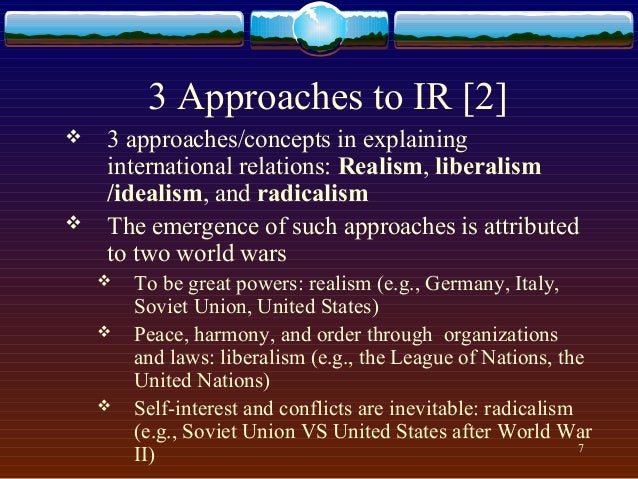Marxist Approach To International Relations

The increased importance of international economic relations and the emerging struggle between the forces of colonialism now new-colonialism and anti-colonial Third World plus former socialist states is quoted by the supporters of the Marxian Approach to observe that these facts fully bring home the utility of Marxian Approach to international. The Marxist approach views the power relationship between the two classes, namely, the employer (capital) and the employee (labour), as the crux of the industrial relations. Both classes struggle hard to consolidate their respective positions so that they can have a greater leverage over the other in the process of bargaining.
Textbooks and Readers. There are no textbooks geared specifically to the teaching of Marxist international relations (IR), but a wide variety of student-friendly books and book chapters fills the gap.
This view of is a by product of a theory of capitalist society and social change. Marxists argue that industrial relation is a relation of clashes of class interest between capital and labour. Employer (capital) tries to maximize profit by holding surplus value and underpaying workers remuneration. Workers clash for his share in the outcome of wealth because he is the human means of production, so the most important factor of production. Industrial relation is a continuous process of clash of interest between capitalist and labour. This clash will finish in the socialist society only, where capital is controlled by labour class. Marxist Perspective of Industrial Relation argue that:.
Marxist Approach To International Relations Group
Weakness and contradiction inherent in the capitalist system would result in revolution and the ascendancy of socialism over capitalism. Capitalism would foster monopolies.
Wages (costs to the capitalist) would be minimized to a subsistence level. Capitalists and workers would compete/be in contention to win ground and establish their constant win-lose struggles would be evident.This perspective focuses on the fundamental division of interest between capital and labor, and sees workplace relations against this background. It is concerned with the structure and nature of society and assumes that the conflict in employment relationship is reflective of the structure of the society.
Conflict is therefore seen as inevitable and trade unions are a natural response of workers to their exploitation by capital. Leave a ReplyYour email address will not be published. Required fields are marked.Name.Email.WebsiteCommentYou may use these HTML tags and attributes: Currently you have JavaScript disabled. In order to post comments, please make sure JavaScript and Cookies are enabled, and reload the page.Notify me of follow-up comments by email.Notify me of new posts by email.